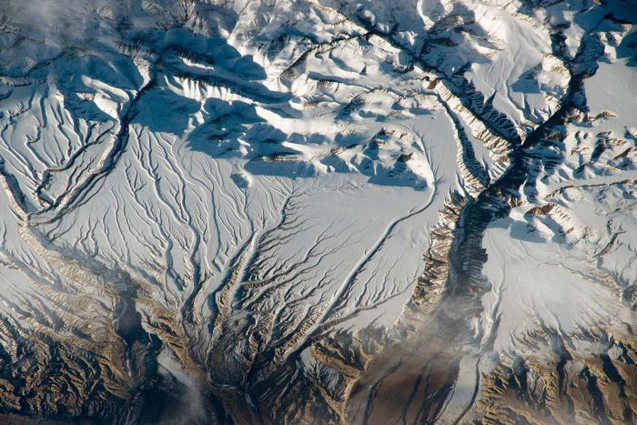 |
| A rise of 3 degrees Celsius could have disastrous consequences. (ABC News: Mary Lloyd) |
Key points:
|
The new report said the world was on track to have average global temperatures rise to 3 degrees Celsius by 2100, as record levels of man-made greenhouse gas emissions, mainly from burning fossil fuels, is trapping more heat in the Earth's atmosphere.
In 2015, almost 200 governments adopted the Paris climate agreement to phase out the use of fossil fuels and limit the rise in temperatures between 1.5C to 2C, to avert "dangerous" man-made climate change.
Weather extremes last year included wildfires in California and Greece, drought in South Africa, floods in India, while the new year saw Queensland and Tasmania threatened by record-breaking floods and bushfires.
Scientists warn there could be more to come as a long-term rise higher than 2C could have more disastrous consequences.
"The long-term temperature trend is far more important than the ranking of individual years, and that trend is an upward one," the UN's World Mereological Organisation (WMO) secretary-general Petteri Taalas said in a statement.
"The 20 warmest years on record have been in the past 22 years," Mr Taalas said.
US, Australia experienced polar climactic extremes |
| Two extremes: Australia had its hottest January on record while the US experienced a record-breaking cold snap. (Nick Monk Photography and AP) |
Two US agencies, the United Kingdom Met Office and the WMO have analysed global temperatures in slightly different ways, but each came to the same conclusion on Wednesday: 2018 was the fourth-warmest year on record behind 2016, 2015 and 2017.
NASA and NOAA climate scientists said even though 2018 was a tad cooler than the three previous years that was mostly due to random weather variations.
|
Climate policy keeps sinking PMs  |
This year has also started with scorching temperatures, including Australia's warmest January on record, while North America had the complete opposite, experiencing a polar vortex that plunged parts of America into temperatures colder than that of Antarctica's.
"The impacts of long-term global warming are already being felt — in coastal flooding, heatwaves, intense precipitation and ecosystem change," said Gavin Schmidt, director of NASA's Goddard Institute for Space Studies.
World temperature may rise 3C by 2100: UN |
| In 2018, drought-stricken California experienced its deadliest wildfires in recent memory. (AP: Noah Berger) |
The British Met Office said temperatures could rise to 1.5C above pre-industrial times, for instance if a natural El Nino weather event adds a burst of heat.
"Over the next five years there is a one-in-10 chance of one of those years breaking the [1.5C] threshold," Professor Adam Scaife of the Met Office told Reuters of the agency's medium-term forecasts.
"That is not saying the Paris Agreement is done for… but it's a worrying sign," he said.This week, a separate report from the International Centre for Integrated Mountain Development found that the Himalayas would lose two-thirds of its glaciers if temperatures rose by 2C by 2100.
 |
| Water released to river systems by melting Himalayan glaciers could be deadly for millions downstream. (Flickr: NASA) |
He did not mention climate change in his State of the Union speech on Tuesday.
Patrick Verkooijen, head of the Global Centre on Adaptation in the Netherlands, told Reuters that the WMO report showed "climate change is not a distant phenomenon but is here right now".
He called for more, greener investments, ranging from defences against rising seas to drought-resistant crops.
Links
- Climate researcher fears Australia could become too disaster-prone to insure
- Like flat earthers and Holocaust deniers, climate change sceptics are unshakable - and dangerous
- Cyclones and extreme weather intensifying with changing climate, BOM says
- Extreme heat events increasing in duration, frequency and intensity: BOM
- The challenges of understanding impact of climate change in Antarctica
- Modelling predicts dire consequences for all wetlands within 80 years
- Heat waves getting hotter across Australia
- Humans driving climate change 170 times faster than natural forces
- Scientists frustrated as extreme weather becomes the new norm
- Impact of climate change on Indigenous communities
- Summer heat broke 205 records
- Climate change's 'canaries in the coal mine'
- Ski season 'could shrink'
- Climate change 'threatens financial system'

No comments:
Post a Comment